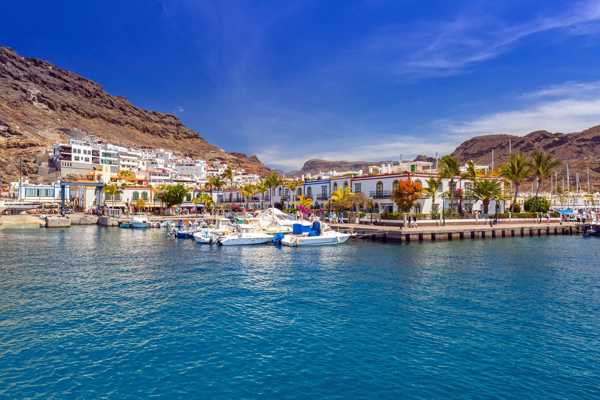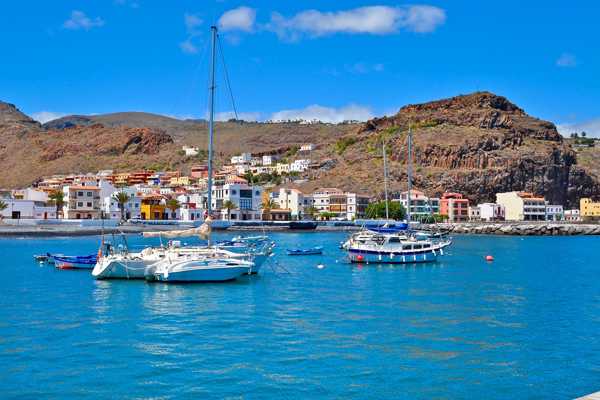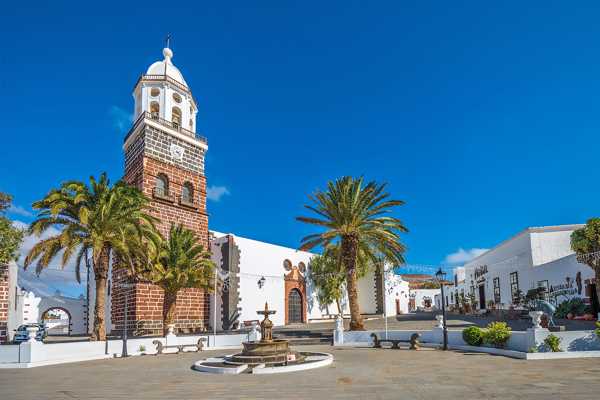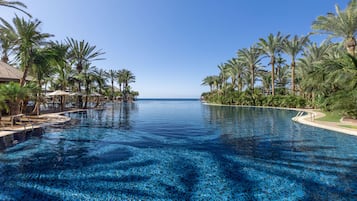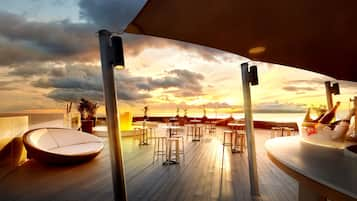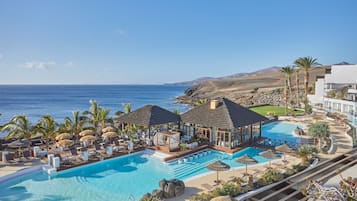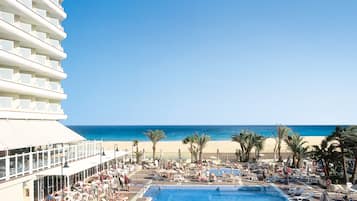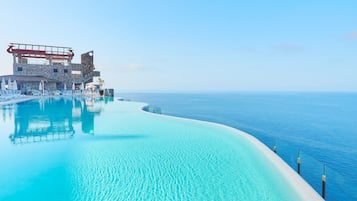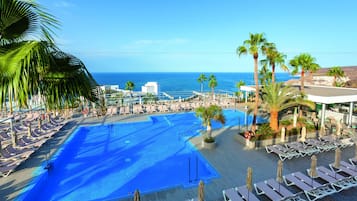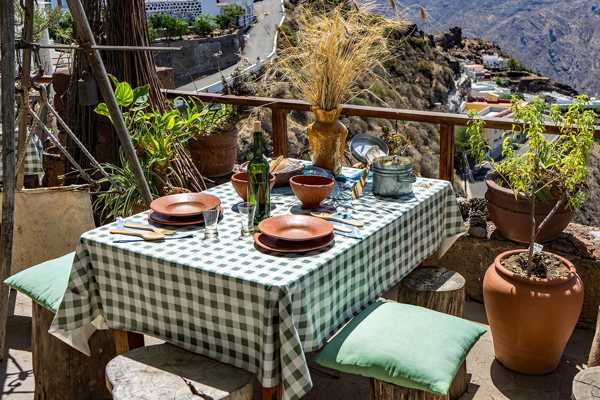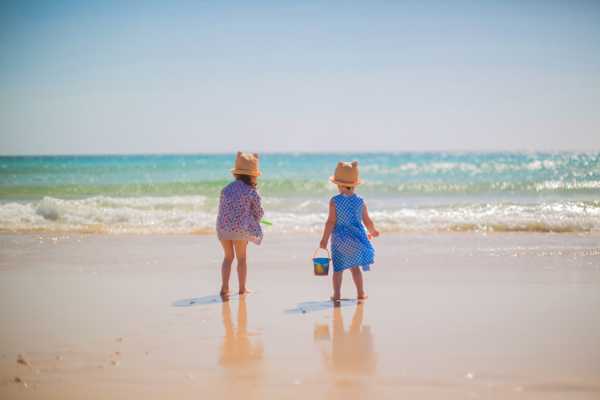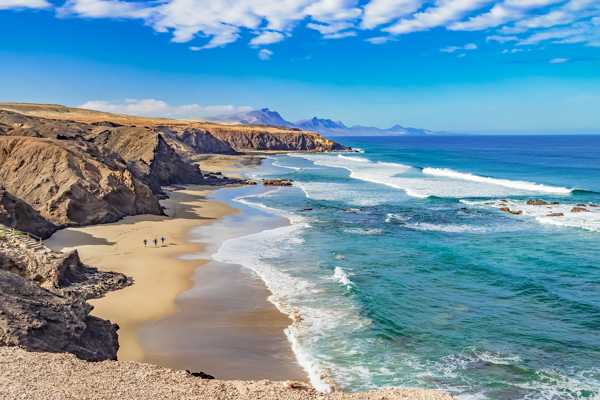La Palma is known locally as La Isla Bonita or 'Beautiful Island' in Spanish. You'll understand why as soon as you set foot on this lush, green island. The landscape is a patchwork of majestic mountains, verdant forests, and deep caves, dotted with pretty towns and villages. At night, clear weather and little light pollution make for spectacular starry skies.
The island's coastline is made up of dramatic cliffs and beaches of dark volcanic sand, where you can sunbathe, go diving or paragliding, or even spot whales and dolphins. La Palma's weather is mild year-round, but if you're hitting the beaches, you’ll want to visit between June and November, when the average water temperature is around 23°C.
- 1
Towns and villages in La Palma
Where to stay in La Palma?

The island's capital is Santa Cruz de la Palma, a charming historic town with attractive baroque buildings and a long sandy beach. Villa de Mazo is another town bursting with history and local culture, with a range of traditional crafts and lots of pretty coves to explore, while Tijarafe hosts one of the island's biggest festivals, El Diablo.
Fuencaliente, in the island's south, is a peaceful town of whitewashed buildings surrounded by sprawling vineyards and volcanic hiking routes. If you like beaches, head for Los Cancajos, which boasts a wide sandy beach that’s popular for swimming and snorkelling as well as plenty of waterside dining. You can also head to the palm-tree lined beach at Puerto Naos, a former fishing village.
- 2
The beaches of La Palma
Where to enjoy the sands of La Palma?

- Aventura
- Econômico
- Foto
La Palma's beaches are dark grey thanks to the island's famous volcanic sand, flanked by dramatic cliffs and rugged coastline. The beaches around Santa Cruz de la Palma are popular with families, especially the long wide beach of Bajamar and the calm waters around the resort beach of Los Cancajos.
The beach of Puerto Naos on the east coast is the biggest beach on La Palma and a popular spot for paragliding. To the south, Echentive is a striking beach with many natural rock pools to swim in. At the southernmost tip of La Palma is Faro de Fuencaliente, known for its picturesque lighthouse and excellent dive sites, including an underwater graveyard.
- 3
Caldera de Taburiente National Park
Vast volcanic crater with extensive pine forests

- Aventura
- Foto
The Caldera de Taburiente National Park is an impressive sight in La Palma. Hiking paths take you around rocky peaks, steep ravines, and viewing platforms overlooking the caldera. Don't miss out on Cascada de Los Colores, a waterfall containing high iron content that leaves bright orange trails on the rock.
Along with huge forests of Canary Island pine, the park is also home to the endangered Canary Island juniper. There are populations of red-billed choughs and Atlantic canaries. Take a tour of the Roque de los Muchachos Observatory, where scientists study the night sky using one of the world's biggest telescopes. You can come at night and enjoy some stargazing of your own.
Localização: Carretera General de Padrón, 47, 38750 El Paso, Santa Cruz de Tenerife, Spain
Telefone: +34 922 92 22 80
Mapa - 4
Charco Azul
Natural saltwater swimming pool on the northwest coast

- Aventura
- Econômico
- Foto
Charco Azul is a natural rock pool at the edge of the ocean that has been enclosed to create a sheltered swimming area. The saltwater pools are bright blue, fed by the sea at high tide and warmed by the sun. Walkways and ladders have been added around the edge to make the pool safe and accessible.
Sunbathing platforms are set up all around the pool with beach umbrellas and magnificent coastal views. There's also a flat, shallow pool for children and a small waterfall cascading over the rocks. The pools are sometimes closed during rough seas, but it's worth a visit anyway to see the waves crashing over the seawall.
Localização: Cam. el Melonar, 15, 38729 Charco Azul, Santa Cruz de Tenerife, Spain
Mapa - 5
Other things to do in La Palma
What else is there to do around La Palma?

- Aventura
- Famílias
- História
- Foto
La Palma's historic towns and beautiful Renaissance buildings are a must-see for history enthusiasts. So are its many archaeological sites, especially the ancient petroglyphs at Belmaco Archaeological Park and the former cave dwellings of El Tendal Archeological Park. Among the island's outstanding churches, highlights include the baroque art at Templo de San Blas and the elaborately carved ceiling of Santuario de la Virgen de las Nieves.
The island's history is explored in a fun and creative way at many excellent museums. The Naval Museum is housed in a replica boat and filled with 5 centuries worth of maps and navigational instruments. Museo de la Seda explores the history of silk production, while Museo Casa Roja is a former mansion with displays on local festivals. Your visit isn't complete without trying a glass of wine at local vineyards like Bodegas Teneguía and La Casa de Volcán.
- 6
Natural wonders of La Palma
See more of the island's untouched beauty

- Aventura
- Foto
La Palma's rich green landscape and pristine nature rewards exploration. Hike the Route of the Volcanos to see more of the island's dramatic volcanic landscape and breathtaking vistas. Mornings have the clearest weather, while afternoon trade winds bring the famous Sea of Clouds when low-lying clouds are visible below you from the peaks.
You can spot sparrowhawks, kestrels, and Cory's shearwaters around La Palma's forests and coastline. The island is also home to dozens of butterfly species. Hop on a boat for more awe-inspiring encounters with animals in the surrounding oceans, including whales, dolphins, and turtles. Explore echoing caves around the mountains or kayak around sea caves along the coast.
- 7
Dining and restaurants in La Palma
Where to eat in La Palma?

- Alimentação
Local: Eat slow-cooked pork and traditional Canarian dishes at Parrilla Las Nieves, where the Mendoza family grow their own produce, or head inland to Restaurante Bodegón La Abuela, a friendly spot with a wide balcony and beautiful mountain views.
Luxury: Splash out on a meal at Bululú Fusion, well-known for its eclectic mix of world cuisines including Creole, Venezuelan and Italian dishes, or try some of the unique flavours and imaginative small plates at La Gatera Gastro-Bar.
Iconic: Enriclai is a petite restaurant in a 19th-century building with eco-friendly wines and lots of vegetarian options, or you can try one of the excellent wine-tasting evenings in the cosy dining room at La Casa del Volcán.
- 8
La Palma shopping
Where to shop in La Palma?

- Compras
Shopping in La Palma is concentrated around Santa Cruz de la Palma and Los Llanos. Wander down the pedestrian street of Calle O'Daly in Santa Cruz for a colourful mix of clothing and crafts, or check out the seafront souvenir shops on Avenida Marítima. Los Llanos is more modern, with numerous gleaming malls like the Galeria Plaza and Centro Comercial Trocadero.
La Palma has a long tradition of craftsmanship that thrives in places like the Artefuego glass-blowing factory and the showcasing of independent Canarian designers in La Molina Artesania. The island is full of colourful farmers' markets where you can buy fresh produce and local crafts. Two of the island’s most popular venues are Villa de Mazo Market and Puntagorda Market, both of which open on weekends.
- 9
La Palma nightlife
Where to enjoy an evening in La Palma for families and groups?

- Vida noturna
La Palma's nightlife is laidback and friendly, with a focus on wine from island vineyards and locally brewed beer. If you want the excitement of clubbing, IT7 Lounge Club in Santa Cruz serves chilled cocktails to a hip young crowd, while Karma Copas VIP Club in Los Llanos has a buzzing dancefloor and a good range of spirits.
Wine enthusiasts can enjoy a cool glass at Bar La Papirusa, accompanied by tapas and delightful views from the terrace, or take in panoramic views of the coast at Cafeteria Mirador El Time in Tijarafe. Also popular in Tijarafe is Cerveceria Isla Verde, a craft brewery that serves its own craft beers, which are brewed on-site.
- 10
How to get to La Palma
Factual travel information on La Palma

There are direct flights to La Palma Airport from dozens of major European cities, including London. Another option is to fly to Madrid or Barcelona and then take a connecting flight to La Palma.
If you're coming from elsewhere in the Canary Islands, you can get here via domestic flights from Tenerife North or Gran Canaria. There are also ferries to Santa Cruz de la Palma from the ports of Las Palmas in Gran Canaria and Los Cristianos in Tenerife.

